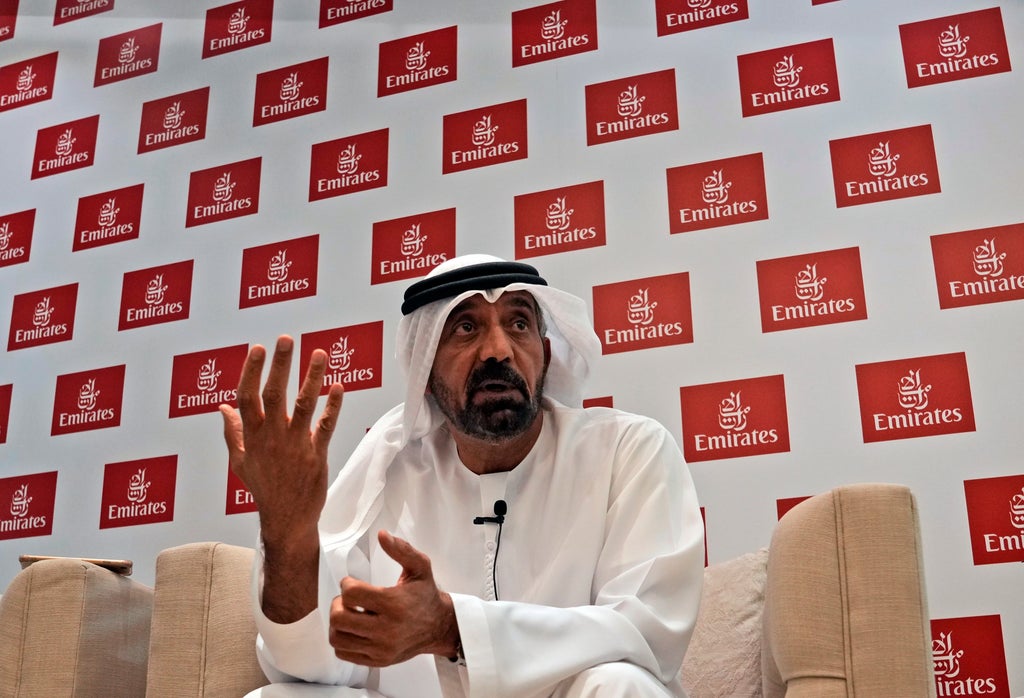
Long-haul carrier Emirates plans to use projected profits from this fiscal year to pay back the Dubai government some of the nearly $4 billion it pumped into the beleaguered airline during the height of the coronavirus pandemic, its chairman said Tuesday.
The cash infusion of close to 15 billion dirhams ($4 billion), which came in two tranches over 2020 and 2021, provided a lifeline to one of the world’s biggest airlines at a time when travel had come to a near standstill globally due to COVID-19.
Emirates' CEO and Chairman Sheikh Ahmed bin Saeed Al Maktoum said the Dubai-based airline expects to see profits this year and will use those earnings to pay back its shareholder, the government. He was speaking to reporters in Dubai at the Arabian Travel Market trade show. It saw two sprawling convention center halls packed with pavilions and stands by major hotel brands, airlines and tourism authorities. They came from as far as Jamaica and Japan in another sign of how travel is picking back up.
“It was an equity to the company and this is why I am saying that as of next year we will be paying all that money ... over the period of time,” he said, stating that the payment will be made through dividends from the current 2022-2023 fiscal year. He refrained from stating how much the airline will be able to immediately pay back all at once.
Sheikh Ahmed said U.S. airlines that have complained for years about unequal competition from Mideast carriers accused of being subsidized by their oil-rich Gulf governments also turned to the government to request bailout assistance during the pandemic.
“They were complaining about us being subsidized,” he said. “We know that all the major top airlines ... they went to their government, they were in Europe, in America, they were in the far East.”
Emirates' success is seen as integral to the health of Dubai’s economy, which relies heavily on tourism, investment and real estate. After a brief nationwide shutdown of all commercial flights to the United Arab Emirates in 2020, Dubai quickly flung open its doors to tourists and eliminated quarantine upon arrival.
The carrier's hub is Dubai International Airport, which is the world's busiest for international travel.
The airline last year posted a net loss of $5.5 billion as revenue fell by more than 66% due to global travel restrictions sparked by the coronavirus pandemic. It marked the first time in more than three decades that the Dubai-based airline’s parent group has not churned out a profit, underscoring just how dramatic an impact COVID-19 has had on the aviation industry.
Sheikh Ahmed said the airline, which is among Dubai's biggest employers, is operating at about 80% of its staffing levels as compared to before the pandemic.







